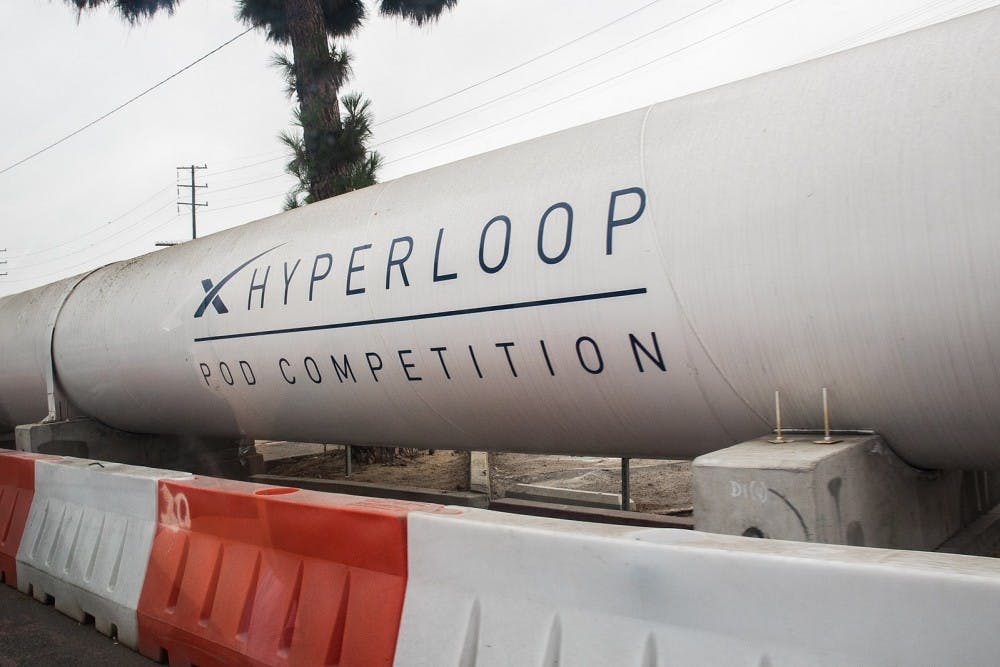The Pennsylvania Turnpike Commission approved a $2 million study this March on the feasibility of a hyperloop between Philadelphia and Pittsburgh, which would theoretically cut travel time between the cities to under 30 minutes. While Penn students from Pittsburgh said the hyperloop would provide a much-needed faster travel option, professors expressed skepticism over the necessity of the hyperloop.
Hyperloops, first proposed by 1997 College and Wharton graduate Elon Musk, use electric propulsion to move people and freight through a low-pressure tube. This reduces travel friction and allows vehicles to reach maximum speeds of nearly 700 mph — two to three times faster than high-speed rail and 10 to 15 times faster than traditional trains. Pennsylvania’s hyperloop feasibility study is expected to reach a conclusion by 2020.
Penn students from Pittsburgh said a Philadelphia-Pittsburgh hyperloop would make trips home far more convenient.
Wharton freshman Ben Zeisloft said his two current transportation options are Amtrak trains or Greyhound buses. Both of these usually take “about seven or eight hours,” far longer than the proposed hyperloop.
“Personally, I would find it really convenient if some form of this could be executed just because [of] how much I do travel back and forth between Philly and Pittsburgh,” Wharton freshman Mahak Sethi added. “Right now, the transportation options take forever.”
But Penn professors said they do not think building a Philadelphia-Pittsburgh hyperloop would be productive given the high costs.
Real Estate Department Chair Gilles Duranton said the hyperloop would cost “tens, if not hundreds, of billions” of dollars and would not be economically advisable even if it was technically feasible. If a hyperloop was to be built, Duranton said, Boston to New York City or Los Angeles to San Francisco would be better starting points because of their higher volumes of traffic.

RELATED:
University City drivers could be charged a congestion fee within the next couple years
New SEPTA bus route to provide access from University City to greater Philadelphia
“Does it really make sense to build a hyperloop between two cities where between which traffic is not that great, instead of two much bigger cities?” Duranton asked. “If it makes sense to build a hyperloop, you probably don’t want to start with Philadelphia to Pittsburgh.”
Megan Ryerson, the UPS Chair of Transportation in the Weitzman School of Design, echoed Duranton’s concerns that a Philadelphia-Pittsburgh hyperloop does not target a high-volume traffic corridor.
“Today, the demand for high speed travel between Pittsburgh and Philadelphia doesn’t necessarily justify such a massive new system,” Ryerson said.
Ryerson added that state officials should focus more on improving existing transportation systems rather than chasing novel solutions.
“The transportation system has a very, very long history of getting excited about new projects rather than being excited about what’s really needed, like incremental maintenance and system upgrades,” she said. “But that’s not exciting. It’s what’s needed but it’s not what’s exciting.”
While professors were skeptical, Zeisloft expressed support for the hyperloop, seeing it as an investment in an oft-overlooked Pittsburgh economy.
“It’s encouraging to see more interest in our economy, especially from the Northeast [because] sometimes we feel separated from the rest of this part of the country,” Zeisloft said of Pittsburgh.
Sethi expressed a bleaker view of the hyperloop proposal.
“In an ideal world, it could be a really cool idea,” she said. Still, she predicted “the outcome of the study will most likely be negative.”









